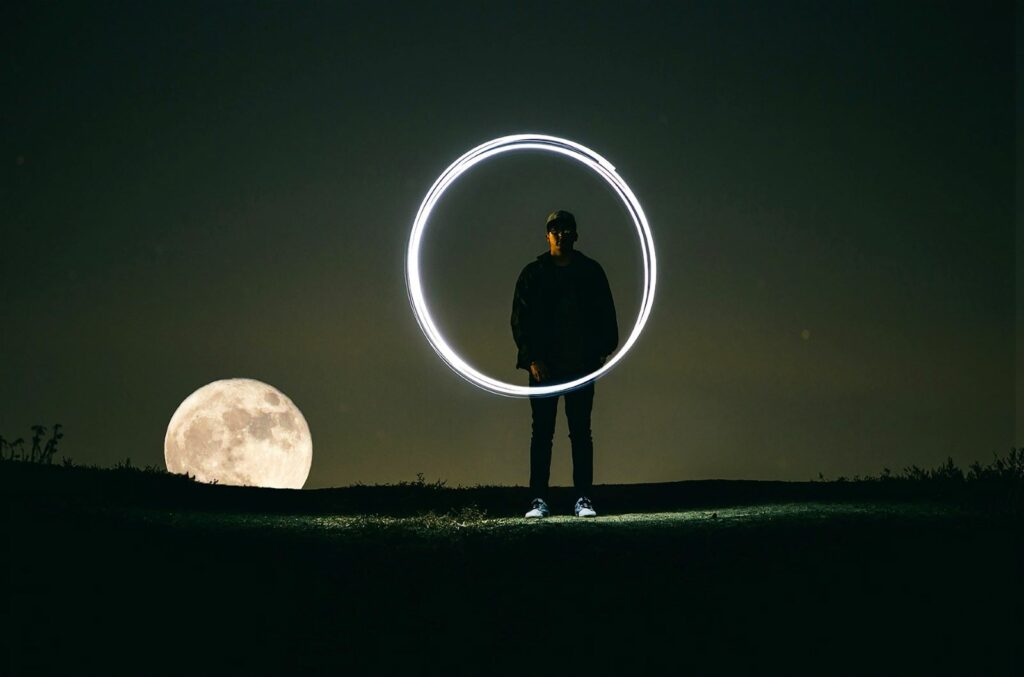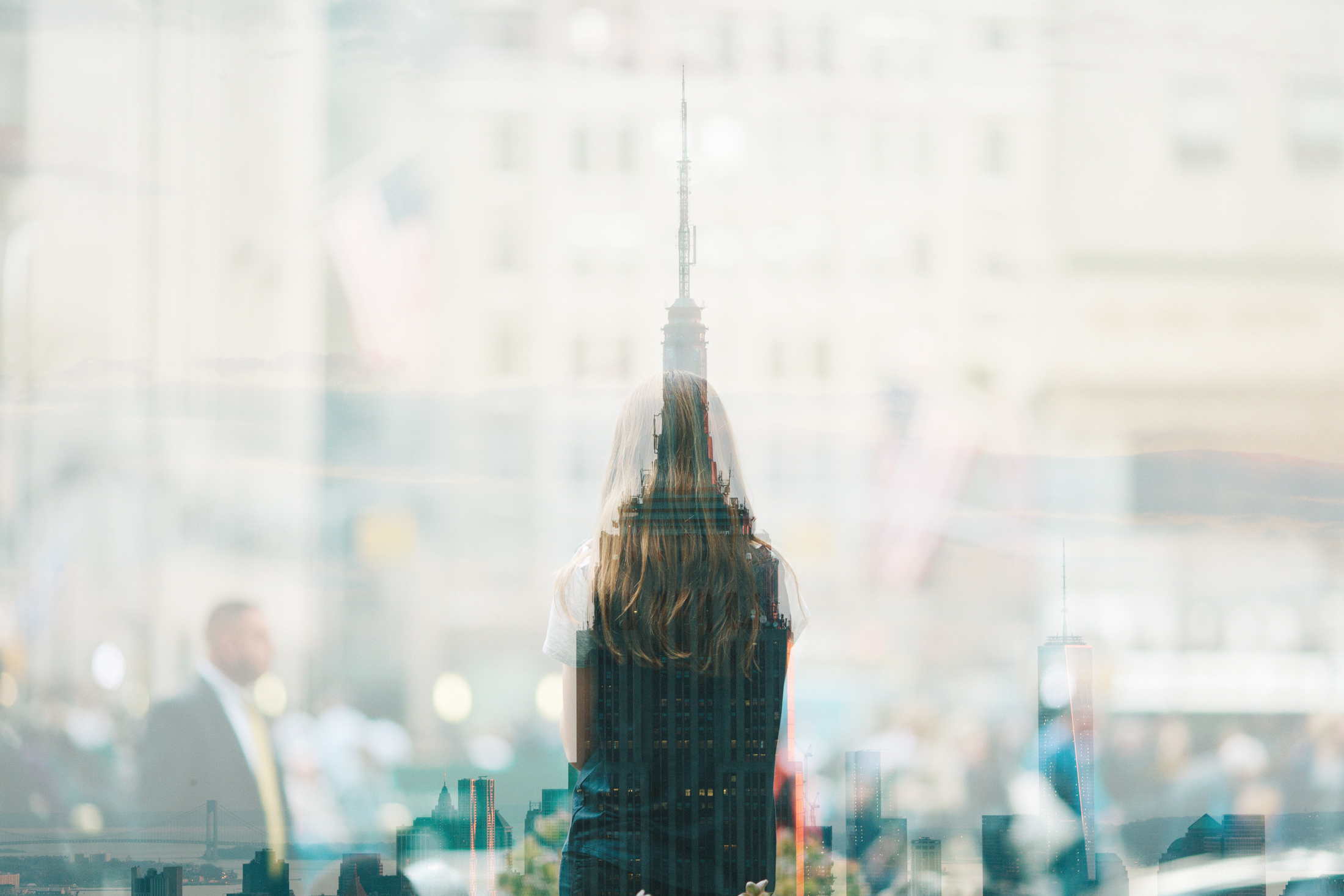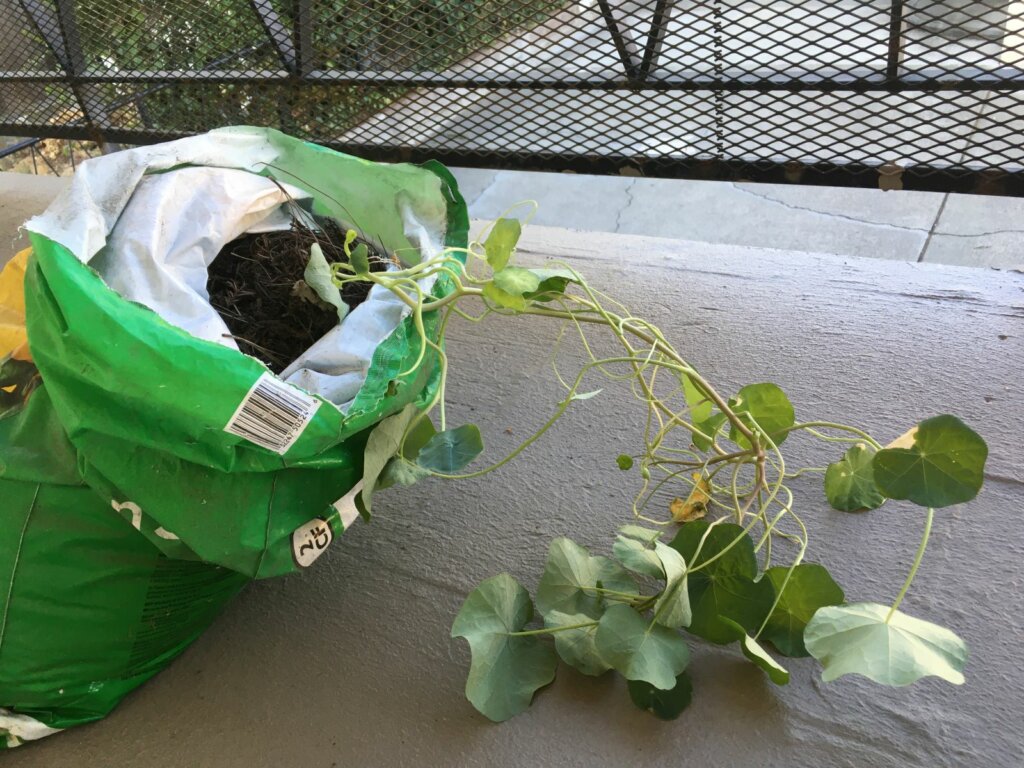I feel incredibly off. In large part, it’s because I’ve been sick with a cold for the last nine days. Add in lack of sleep due to said cold, disruption at my apartment because of construction, Trump returning to the White House, the collective heartbreak around the LA wildfires, continued destruction of Gaza, and all the other tragedies in the world, and I want to pull a Rip Van Winkle. If I could go to sleep and wake up once everything is better, that would be great.
When life is like this, I remind myself of a few things: One, I don’t need to tackle my life’s problems (or the world’s problems) all at once. I do what I can when I can. And two, what’s called for is the next right action. The next right action varies but it’s always something small and manageable like taking a shower, calling that person, or running an errand. Little things snowball into big things and I can trust the big things take care of themselves when I focus on taking the next right action over and over again.
Lastly, to keep myself from falling into a pit of despair, it’s important to find the good and remember the miracles all around me. To that end, I’m resharing a post from August 2023. I hope it helps you as much as it does me.
After a long day of staring at my computer screen, I walked outside to my apartment complex’s terrace where something caught my eye. Leaning against the far wall beneath an overhang is a bag of detritus. It’s filled with dirt and pine needles and everything workmen scooped out of our gutters from at least eight months ago, if not longer. Do you know what was spilling out of that bag?
A well-developed nasturtium vine. There are so many things about this that are astounding. Number one, I’m on that terrace every few days watering my plants. How did I not notice it before? And number two, it hasn’t rained here in MONTHS. How did that nasturtium vine survive?!? It’s not like any of my neighbors were watering a bag of soil in an attempt to keep a plant alive. And yet, not only did the vine survive, it thrived as you can see in the picture.
When I saw this plant, I literally laughed out loud because it was so unexpected and also miraculous. It reminded me that miracles are everywhere if we look for them. Miracles often have the connotation of being something big and obvious, but they can also be small and discreet, like this nasturtium vine.
I could use more miracles in my life. It’s easy for me to become disheartened by the ever-present pessimism in the news. Fires leveling towns. Floods. Famines. It’s a lot. And yet, if I look around, I also see evidence of miracles. Back in November, scientists captured footage of the black-naped pheasant-pigeon, which hadn’t been seen since 1882! In Brazil, the Golden Lion Tamarin used to be on the brink of extinction with about 200 animals in the wild, but the population has rebounded to around 4,800, according to a recent study.
Miracles happen every day with people surviving deathly car crashes, getting pregnant when they thought they were infertile, or walking again when they were told it was impossible. It’s easy to think, “Well, that wouldn’t happen to me,” but what if it could? What if you could also receive a miracle? And like me with the nasturtium plant, what if miracles are all around and we’re just not noticing them?
Given the choice between a world where we’re all doomed and one where miracles occur, I vote for the latter. It reminds me of a concept we have in my spiritual tradition called madhuvidyá, which literally means “honey knowledge.” It requires seeing everything as an expression of an infinite loving consciousness, also known as Brahma.
My spiritual teacher says, “This madhuvidyá will pervade your exterior and interior with … [ecstasy] and will permanently alleviate all your afflictions. Then the ferocious jaws of [degeneration] cannot come and devour you. The glory of one and only one benign entity will shine forth to you from one and all objects.”
That may not seem relevant but for me, practicing madhuvidyá means remembering God is here, there, and everywhere. Because everything is Brahma, everything is a manifestation of that infinite loving consciousness. In that framework, OF COURSE miracles are everywhere. How could they not be?
I dream of a world where we recognize the strange and the unlikely occurs all the time. A world where we make room for magic and mystery. A world where we understand this entire universe is composed of an infinite loving consciousness that is all-knowing and all-powerful. A world where we recognize if that’s true, if anything can happen, then miracles can too.
Another world is not only possible, it’s probable.
Piggybacking on my post from last week about a new definition of perfection, I’m pondering a new definition of “good.” When I think of “good” or “being good,” it’s usually in a binary way: “This is good, this is bad.” And often “good” is from an outside source. I’m “good” if I follow the rules, if I do the things other people tell me or want me to do. But because people are contradictory (myself included), I’m also a rulebreaker. If I think a rule is stupid or doesn’t make sense, I won’t follow it. A fight I had near constantly when I lived in London was, “No, I don’t want to do it this way just because it’s always been done that way.”
The past few weeks I’ve toggled between wanting to do things my way and wanting to do things other people’s way, with my inherent goodness at stake. My therapist encouraged me to change my definition of good to encompass living in harmony with nature and all created beings. She specifically told me to look up “walking the beauty way path,” a Navajo/Diné concept.
Diné historian Wally Brown explains in a video that anyone can find their own way to walk in beauty, regardless of their background or beliefs. What the beauty way path means, fundamentally, is acknowledging the sacredness of all life and trying to be in alignment with the natural world. Instead of, “Did I follow a rule that someone else set?” it’s, “Am I treating all beings with respect? Am I striving for inner peace?” If so, I’m walking the beauty way path. There’s a prayer to go along with this concept that I’m including below:
In Beauty may I walk.
All day long may I walk.
Through the returning seasons may I walk.
On the trail marked with pollen may I walk.
With grasshoppers about my feet may I walk.
With dew about my feet may I walk.
With Beauty may I walk.
With Beauty before me, may I walk.
With Beauty behind me, may I walk.
With Beauty above me, may I walk.
With Beauty below me, may I walk.
With Beauty all around me, may I walk.
In old age wandering on a trail of Beauty,
lively, may I walk.
In old age wandering on a trail of Beauty,
living again, may I walk.
It is finished in Beauty.
It is finished in Beauty.
This prayer reminds me of a similar concept in my spiritual tradition: madhuvidyá, which literally means “honey knowledge.” Practicing madhuvidyá means seeing beyond the surface of people, places, and things to witness their true form. It’s recognizing everything is Brahma, Cosmic Consciousness, Source, the Universe, whatever name you have for it. In other words, it’s seeing beauty everywhere.
The beauty way path means recognizing I’m enveloped in love and beauty. That love and beauty are me. And if I’m treating others as if that’s true, I don’t need to worry about being “good” or “bad.” I’m doing something else – I’m walking a path, adjusting and course-correcting as need be. I may not always see the beauty in me or around me but that’s OK because as with everything, it all comes down to practice.
I dream of a world where we toss aside the binary of good/bad. A world where we focus instead on treating others with kindness and respect. A world where we see the beauty above us, below us, behind us, around us, and inside us. A world where we walk the beauty way path, whatever that means for us.
Another world is not only possible, it’s probable.
All week I’ve been thinking about how people are complicated and contradictory. A person can be a mass murderer and an excellent dog parent. A man can beat his wife and act meek at work. A woman can preach love and kindness and be sharp and cutting with her inner circle. Instead of trying to puzzle out which side is the “real them,” my perspective is it’s all them.
Walt Whitman speaks to this in one of his poems when he writes, “Do I contradict myself? / Very well then I contradict myself, / (I am large, I contain multitudes.)” In therapy, this contradiction is recognized via the modality “Internal Family Systems,” also known as parts work. The traditional form of IFS categorizes the various parts of a person into three roles:
- Managers, who seek to control surroundings, manage emotions, and navigate tasks in daily life.
- Exiles, or parts that hold hurt, fear, and shame that are tucked away and hidden from conscious awareness.
- Firefighters, who seek to inhibit difficult emotions by any means necessary such as addiction.
Personally, I find those categories too limiting. For instance, I’ve done a lot of trauma and recovery work so the parts of me that hold hurt, fear, and shame are not exiled – they are seen, heard, and accepted. Regardless, what I appreciate about parts work is it recognizes how complex humans are – that we contradict ourselves and act in surprising ways. And instead of focusing on one part or another part, IFS emphasizes embracing all of it. IFS says the part of you that flies into a rage is just as much you as the part that weeps over a sunset. It’s ALL you.

We are everything. Photo by Austin Neill on Unsplash
Our society very much likes polarization and black-and-white thinking. “This person is a monster! This person is a saint! This thing is good! This thing is bad!” But that’s not true. Reality is nuanced. People are nuanced. You can be a little bit right and a little bit wrong AT THE SAME TIME! Baffling, right? But it’s true.
This is something I appreciate about my spiritual tradition – it emphasizes embracing everything. It doesn’t say this thing is an expression of an infinite loving consciousness but that thing is not. It doesn’t say, “You’re only allowed to feel happy and peaceful all the time.” No, my spiritual tradition says, “You’re human, you have instincts and emotions and we want you to feel those too. We want you to recognize those parts of you are also sacred and holy.”
Gorgeous, right? We practice viewing everything as sacred with something called madhuvidyá, which literally means “honey knowledge.” It’s a sort of magic wand that transforms your thinking when done well. My spiritual teacher says, “This madhuvidyá will pervade your exterior and interior with … [ecstasy] and will permanently alleviate all your afflictions. Then the ferocious jaws of [degeneration] cannot come and devour you. The glory of one and only one benign entity will shine forth to you from one and all objects.”
The practice of madhuvidyá says even this thing I don’t like or perhaps even hate is an expression of an infinite loving consciousness. Practicing madhuvidyá means I’m able to see beyond the surface of people, places, and things to witness their true form. I recognize everything is Brahma, Cosmic Consciousness, Source, the Universe, whatever name you have for it. And just as the universe is vast, complicated, and contradictory, people are too. As a reflection of Cosmic Consciousness, we contain multitudes.
I dream of a world where we understand people are not one way or another. A world where we recognize people have parts of themselves that get expressed at different times. A world where instead of thinking one part is real and another is false, we understand that all of it is true. A world where we remember that as reflections of Cosmic Consciousness, we contain multitudes.
Another world is not only possible, it’s probable.
After a long day of staring at my computer screen, I walked outside to my apartment complex’s terrace where something caught my eye. Leaning against the far wall beneath an overhang is a bag of detritus. It’s filled with dirt and pine needles and everything workmen scooped out of our gutters from at least eight months ago, if not longer. Do you know what was spilling out of that bag?
A well-developed nasturtium vine. There are so many things about this that are astounding. Number one, I’m on that terrace every few days watering my plants. How did I not notice it before? And number two, it hasn’t rained here in MONTHS. How did that nasturtium vine survive?!? It’s not like any of my neighbors were watering a bag of soil in an attempt to keep a plant alive. And yet, not only did it survive, it thrived as you can see in the picture.
When I saw this plant, I literally laughed out loud because it was so unexpected and also miraculous. It reminded me that miracles are everywhere if we look for them. Miracles often have the connotation of being something big and obvious, but they can also be small and discreet, like this nasturtium vine.
I could use more miracles in my life. It’s easy for me to become disheartened by the ever-present pessimism in the news. Fires leveling towns. Floods. Famines. It’s a lot. And yet, if I look around, I also see evidence of miracles. Back in November, scientists captured footage of the black-naped pheasant-pigeon, which hadn’t been seen since 1882! In Brazil, the Golden Lion Tamarin used to be on the brink of extinction with about 200 animals in the wild, but the population has rebounded to around 4,800, according to a recent study.
Miracles happen every day with people surviving deathly car crashes, or getting pregnant when they thought they were infertile, or walking again when they were told it was impossible. It’s easy to think, “Well, that wouldn’t happen to me,” but what if it could? What if you could also receive a miracle? And like me with the nasturtium plant, what if miracles are all around and we’re just not noticing them?
Given the choice between a world where we’re all doomed and one where miracles take place, I vote for the latter. It reminds me of a concept we have in my spiritual tradition called madhuvidyá, which literally means “honey knowledge.” It requires seeing everything as an expression of an infinite loving consciousness, also known as Brahma. My spiritual teacher says, “This madhuvidyá will pervade your exterior and interior with … [ecstasy] and will permanently alleviate all your afflictions. Then the ferocious jaws of [degeneration] cannot come and devour you. The glory of one and only one benign entity will shine forth to you from one and all objects.”
That may not seem relevant but for me, practicing madhuvidyá means remembering God is here, there, and everywhere. And because everything is Brahma, everything is a manifestation of that infinite loving consciousness, then OF COURSE miracles are everywhere. How could they not be?
I dream of a world where we recognize the strange and the unlikely occurs all the time. A world where we make room for magic and mystery. A world where we understand this entire universe is composed of an infinite loving consciousness and from that place, we recognize miracles are everywhere.
Another world is not only possible, it’s probable.
My spiritual teacher uses the word “beatitude” a lot because that is his wish for everyone, that we all experience felicity of the highest kind, or consummate bliss. That got me thinking about bliss, what it means to be blissful, and how that squares with, well, life. For instance, on New Year’s Day, my parents and I found the back window of our car rental smashed in. How does that fit in with consummate bliss?
I don’t know because I’m just a human being, but what I do know, according to my spiritual philosophy, is every entity is moving from crudeness toward subtlety (some more quickly than others). The image that comes to mind is that of a river flowing toward the ocean. A current is carrying us from where we are now to somewhere else. Parts of the river are calm, others are choppy. While flowing down this river we may experience anger, fear, or sorrow, but the one constant is the water itself. Maybe bliss is like that. Maybe it’s the ever-present water below carrying us forward.
In my spiritual tradition we have a word for viewing the world from this lens. It’s called madhuvidyá. Madhuvidyá literally means “honey knowledge” and requires seeing everything, EVERYTHING, as an expression of an infinite loving consciousness, also known as Brahma. Yes, that means our car rental window getting smashed. It also means all the bad things, all the irritations, all the whatever that seem anything but blissful.

Working on this “honey knowledge” thing. Photo by Arwin Neil Baichoo on Unsplash
“This universe of ours is not absolute truth – it is only a relative truth,” my spiritual teacher says. “So the wise should try to know the absolute truth. But simultaneously it is also desirable that while striving to realize the Supreme Entity one should maintain an adjustment with this relative world. While doing one’s duties properly with the application of madhuvidyá, one can achieve permanent cessation of afflictions from this relative world. Then all the entities of this world will be as sweet as honey for the spiritual aspirant.”
That’s what I want for myself. I want all the entities of this world to be as sweet as honey. Not in a spiritual bypassing sort of way, but a recognition of both the relative truth and the absolute truth. The relative truth is I was so pissed off about the smashed window I screamed at the top of my lungs, cussing out whoever did it. And the absolute truth is the glass scattered across our backseat, the person or people who broke the window, and whatever they used to break it, are also Brahma, are also love, are also the Supreme.
As I enter this new year, it will be easy to fall into the trap of seeing things in black and white. Or labeling them as good or bad. But maybe I can also keep in the back of my mind that I’m evolving, the world is evolving, and the river we’re traveling on will never run smooth. But regardless, the water pushing us forward is there, is steady, is constant, and quintessentially is love itself.
I dream of a world where we can hold relative truths as well as the absolute truth. A world where we understand rough things will happen to us but love is still there. A world where we realize we’re all on a river moving forward in our evolution. A world where we do our best to lace our perspective with honey knowledge so that we can experience untold sweetness.
Another world is not only possible, it’s probable.
A few days ago, I visited Mount Rainier National Park for the first time with my parents. Doing so, now I understand the hype about the Pacific Northwest in the summer. It was gorgeous – the mountain views, the lakes, the wildflowers. It took my breath away (sometimes literally as I huffed and puffed up the mountain).
I noticed as we drove back to Seattle where my parents live, I felt sad and a little disgusted. We went from mountains in the distance to skyscrapers. We traded in wildflowers dotting the landscape to shopping malls. After so much beauty, my nervous system started reeling and I wanted to make civilization and cars “bad” or “wrong” while trees and wildflowers were “good” or “right.” Except, how does that serve me?
I know these days our society is all about polarization as well as black and white thinking. You’re either right or you’re wrong. You’re either sane or delusional. We keep speaking in absolutes but that’s not reality. Reality is nuanced. You can be a little bit right and a little bit wrong. In the case of civilization being “wrong,” civilization also spells amenities like schools, hospitals, and libraries. Those are good things. And in the case of Mount Rainier being “right,” living there also means being buried under snow from about mid-October to mid-May. That doesn’t sound so great. Nowhere is a utopia. Nowhere is perfect.

I mean honestly. Look at this! Photo by Gabriel Phipps on Unsplash
Instead of labeling one thing as good and another thing as bad, I think about a practice that’s touted in my spiritual philosophy: madhuvidyá. Madhuvidyá literally means “honey knowledge” and requires seeing everything, EVERYTHING, as an expression of an infinite loving consciousness, also known as Brahma. That means trash on the street, cigarette butts, and yes, even people who do terrible things, are an expression of Brahma. As you can imagine, this practice is HARD.
However, my spiritual teacher says, “If you properly follow madhuvidyá you can keep yourself aloof from the shackles of actions even though you perform actions. This madhuvidyá will pervade your exterior and interior with … [ecstasy] and will permanently alleviate all your afflictions. Then the ferocious jaws of [degeneration] cannot come and devour you. The glory of one and only one benign entity will shine forth to you from one and all objects.”
The practice of madhuvidyá also creates peace, in my experience. It creates acceptance that yes, even this thing I don’t like or perhaps even hate is an expression of an infinite loving consciousness. Practicing madhuvidyá means I’m able to see beyond the surface of people, places, and things to witness their true form. I’m able to recognize everything is Brahma, Cosmic Consciousness, Source, the Universe, whatever name you have for it. And just as the name madhuvidyá suggests, that makes life sweeter.
I dream of a world where we understand everything is a little bit good and everything is a little bit bad. A world where we recognize even things we find distasteful are also an expression of an infinite loving consciousness. A world where we do our best to practice madhuvidyá and see things as they really are.
Another world is not only possible, it’s probable.
Last week, I wrote about how my mindset of late has been, “What can you do for me? What can I get from you?” I’ve been thinking about that more in depth and how that perspective causes all sorts of problems.
Philosopher Martin Buber wrote about this in his book I and Thou. I haven’t read his book, and only conducted a cursory search on the internet about it so I apologize if I get some facts wrong. From my understanding, Buber says we engage in the world in one of two ways: I/it and I/thou.

She’s a person! She’s a building!
In the I/it relationship, we collect data, analyze it, classify it, and theorize about it. The object is viewed as a thing to be used or put to some purpose. This makes sense when we encounter something like a hammer, “What can I do with this? What do I need it for?” It also makes sense when we’re conducting research, or any time when detachment is necessary.
In the I/thou relationship, we engage with the encountered object in its entirety, not in pieces. The I/thou relationship asks us to make ourselves available to another, to understand them, to share with them, to have a dialogue. In essence, to see the other as a human rather than an object.
The I/it relationship is extremely problematic when that’s the only way we engage with others. I see the I/it dynamic reflected in Bill Cosby, who admitted to buying drugs in order to have sex with women. Duuuuude. That is the quintessential I/it relationship. Cosby didn’t think of these women as human beings, but rather as objects that existed for his pleasure. It didn’t matter whether these women wanted to have sex with him, he was going to have sex with them anyway. That is messed up. This is what is meant by the objectification of women. Our rape culture turns women into “its,” thought of as a collection of parts as opposed to people.
Objectification is not relegated to women only, by the way, men are seen as objects too. So are kids, animals, etc. What happened here? Why do we think only of our own selfish needs and not of other people? I can’t answer that question, but I think Buber has a point when he suggests we start viewing other people as “thou” instead of “it.” I know for me, I try to be open and present in all my encounters and not think to myself, “What can I get from you?” When I turn people into objects, I often get called out on it, like when I approached a mail carrier and launched into my question without first saying, “Hello.” He kept saying, “Hello,” until I understood he wanted me to say, “Hello,” back. Nobody likes to be treated as a machine, even if you only have a quick question for them.
Why am I harping on this and why am I bringing it up in a blog about spirituality? For one, I am deeply disturbed by our tendency to view each other as toys to play with and then cast aside. For another, I know when I view all beings – not only people – as “thous,” as entities worthy and deserving of love and respect, I open myself up to moments of transcendence, which Buber also mentions. When I have a reverence for everything, the world shimmers. Not to mention, I start thinking of how I may be of service, which is the key ingredient for a blissful life, according to my spiritual teacher.
I dream of a world where we start viewing each other as human beings, not objects. A world where we practice care, attention, love, and respect when we’re interacting with others. A world where we change our mindset and treat each other with dignity. A world where we move from seeing each other as hammers to humans.
Another world is not only possible, it’s probable.
Sometimes I feel like a marathon runner who forgot where the finish line is. It’s like blackberries growing on the side of the course distracted me and I decided to veer off to pick them. But then my hands got sticky so I had to find some water to wash them off with. And then while looking for water, I found a lake and decided to take a swim, and by that point the finish line is a distant memory.
Doesn’t life seem like that sometimes? To paraphrase Elbert Hubbard, one damn thing after another? I keep chasing after one thing or another thinking it will make me happy, but it never does. Or I’m happy for about five seconds and then it’s on to the next thing. I am on a search for infinite happiness. I’ve been sampling the goodies Earth has to offer and infinite, unlimited happiness ain’t here because by definition everything on Earth is limited and finite. This is why people turn to spirituality in the first place, we are craving mind-blowing bliss of a permanent nature. How do I find that? Especially when there are so many cool things to savor? It’s easy to get distracted, I mean, just look at those blackberry bushes.
Some people say the way to no longer get distracted by the world is to withdraw from it. Go to a cave or a cabin in the woods with no wifi or cellphone service. Meditate all day long and immerse yourself in thinking about God. I don’t know about you, but after a week of that, I start to go stir crazy. In the words of my father, I become “bored out of my gourd.” There are so many cool things in the world! I don’t want to shut myself off from everything and everyone. Doesn’t sound very fun to me.
This dovetails into the post I wrote last week about the the reincarnation merry-go-round. I said the only way to get off the ride is by making everything the divine, because that way we’re like Teflon – nothing sticks to us. We don’t incur the consequences of any actions negative or positive. For instance, when I eat an apple think, “I am eating God in the form of this apple.” That way I’m savoring all that the world has to offer, but I’m not getting caught up in it. I’m not getting distracted or swerving off course from my ultimate goal of merger with the divine.
This concept is what I believe the Bible verse means in 1 John 2:15: “Do not love the world or the things in the world. If anyone loves the world, the love of the Father is not in him. For all that is in the world – the lust of the flesh, the lust of the eyes, and the pride of life – is not of the Father but is of the world.” What we’re striving for is remembering what the true form and the true source of everything is.
I can count the times I’ve been able to accomplish this task on one hand. It’s hard, yo, but when I’ve been able to feel into it, to really know the apple I’m eating is God in the form of this apple, wow. Incredible. Amazing. What I love about this practice is instead of making bliss and enlightenment a future goal, something that happens to me down the road, I’m doing it now. I’m immersing myself in the cosmic ocean and swimming in it this very moment.
To recap, making everything the divine, or the divine in the form of an object, not only stops the reincarnation cycle, but also ensures I’m still on the path toward my goal AND experiencing bliss along the way. I’d call that a win.
I dream of a world where we’re all able to experience bliss. A world where we’re able to feel everything comes from the divine and is the divine. A world where we make enlightenment a current goal. A world where we chase after what will make us happy permanently.
Another world is not only possible, it’s probable.
This is a repost from December 2010.
Life can be so dramatic can’t it? I may get caught up in the circumstances of life – of freaking out about spraining my ankle, getting laid off, tumultuous relationships, even death – but ultimately everything is an expression of an infinite loving consciousness. All of it is God, Brahma, Love, my Higher Power. When I remember that I stop falling for illusions.
In Sanskrit, there is a word maya that means just that – illusion. More deeply, maya means all the worldly trappings that distract us. That’s not to say the worldly trappings don’t exist, but really they are like shadows on the wall. They exist but we’re not seeing their true form.

Sometimes I get caught up in the “shadows” (aka, life stuff) and forget to focus on what’s making the shadow.
I skimmed through one of my favorite books, A Return to Love looking for a quote to fit in with this blogpost and I came across, “Nothing real can be threatened. Nothing unreal exists. Herein lies the peace of God.” The shadows may dance on the wall, but the hand that creates them remains unperturbed.
This post is my effort to return to love. To remind myself what is real. Is it the pain in my ankle? Is it my financial situation? No. They are merely shadows on the wall. The real reality is my higher power, the infinite loving consciousness. My ego likes to pretend otherwise, likes to enjoy the sound and the fury of life, if you will, because that’s the only way my ego will survive.
In truth, I am peace, I am love, I am divine. In truth, all is well, all always was well, all will always be well. No matter the circumstance I go through, no matter the upset, no matter the drama, it’s just noise. The hand creating the shadow is at peace. My soul, my essence remains untouched. Because ultimately love is all there is.
It’s easy to forget and disregard that notion. That everything is an expression of the divine. Especially when life is super dramatic. Except, that’s when I need to pause the most. That’s when I need to jerk my head away from the shadows dancing before me and remind myself where they’re coming from.
I dream of a world where we disengage from the ego’s drama. A world where we bisect the trouble and get to the heart of the matter, which is love is all there is. Even among the violence and upheaval, love is there. Love will always be there. Love always was there. I dream of a world where we know that and feel that and return to that. A world where we focus on the hand creating the shadow rather than the shadow itself.
Another world is not only possible, it’s probable.


